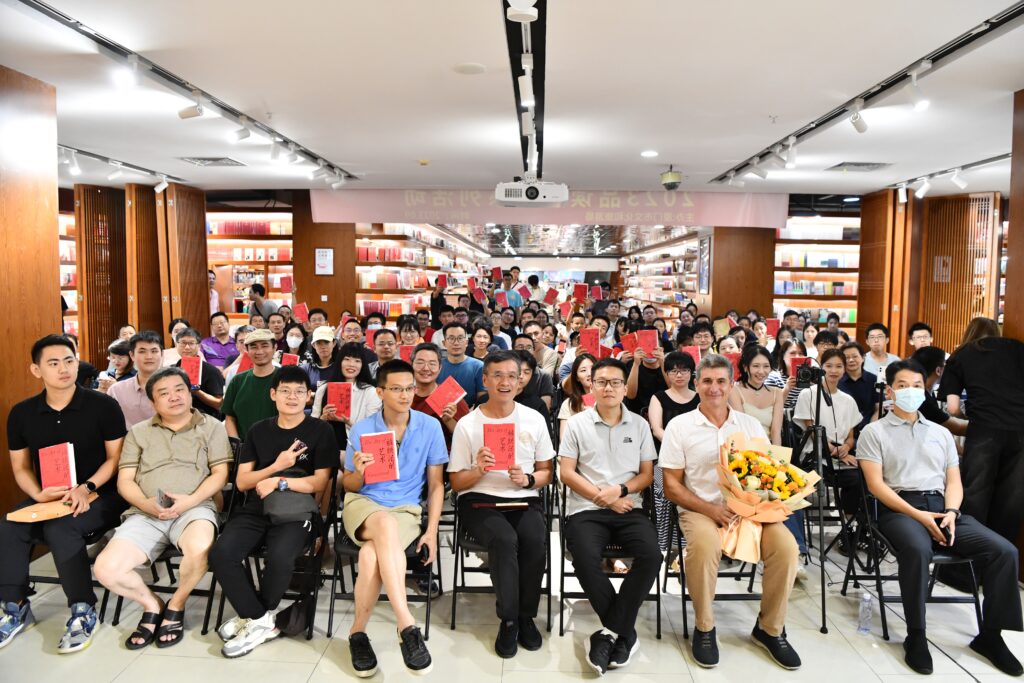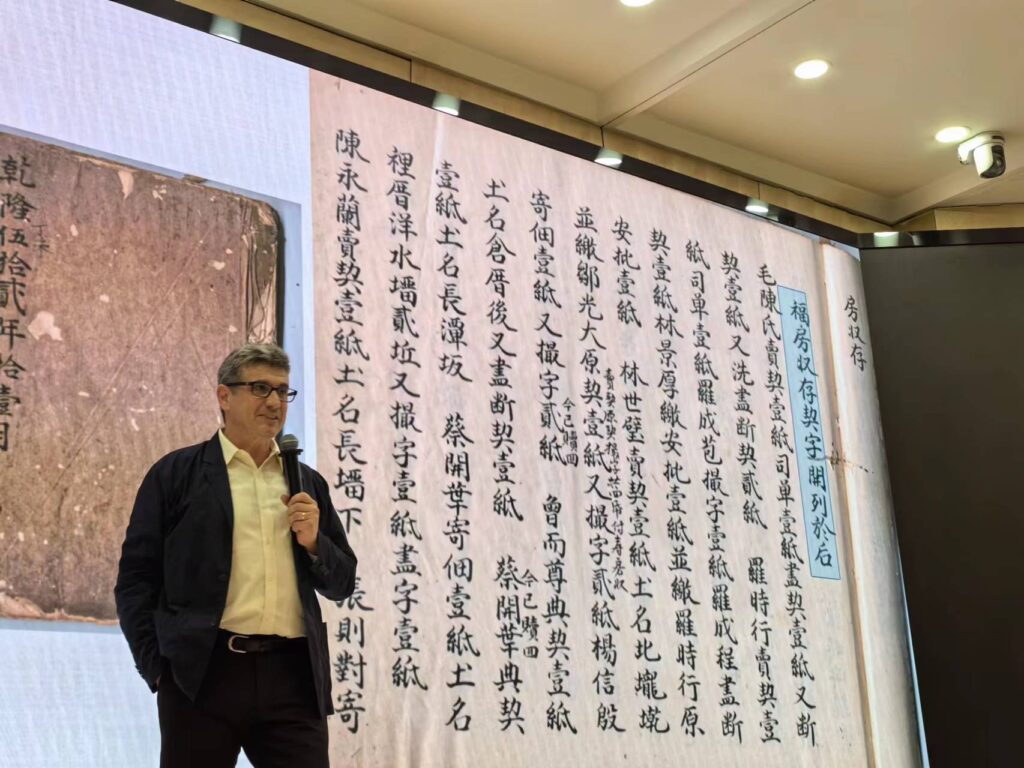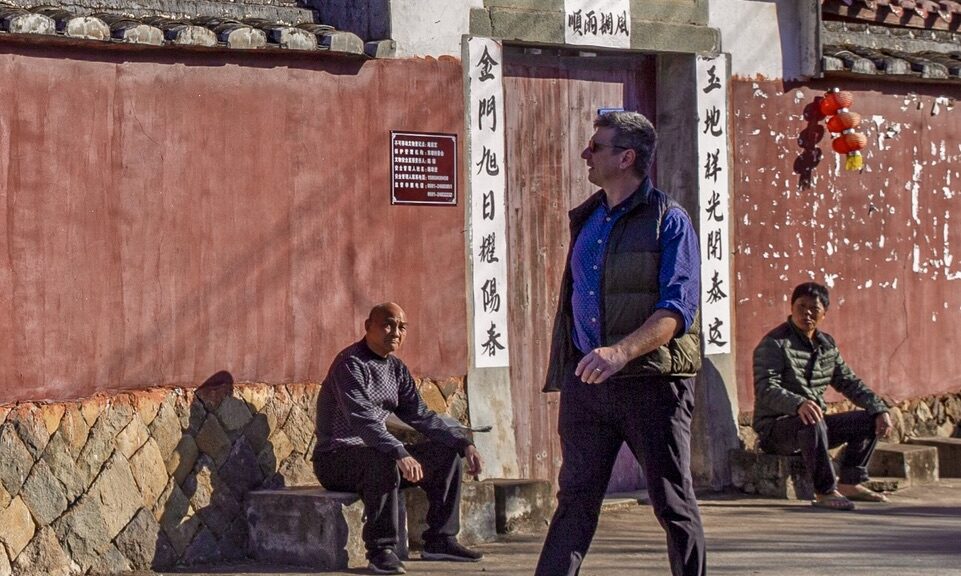Harvard China Fund in Action: (Re)engage with China Grant Recipient, Michael Szonyi, Frank Wen-Hsiung Wu Memorial Professor of Chinese History and former Director of the Fairbank Center for Chinese Studies
Michael Szonyi
January 17, 2024
With the support of Harvard China Fund’s “(Re)engaging China” grant, I arrived in China in August 2023 after an almost four-year absence, the longest in my professional career and indeed my adult life. I’ve been based at Xiamen University, where I studied as a graduate student and where I continue to collaborate with the Center for Local Historical Documents. I’ve been working on two main projects.
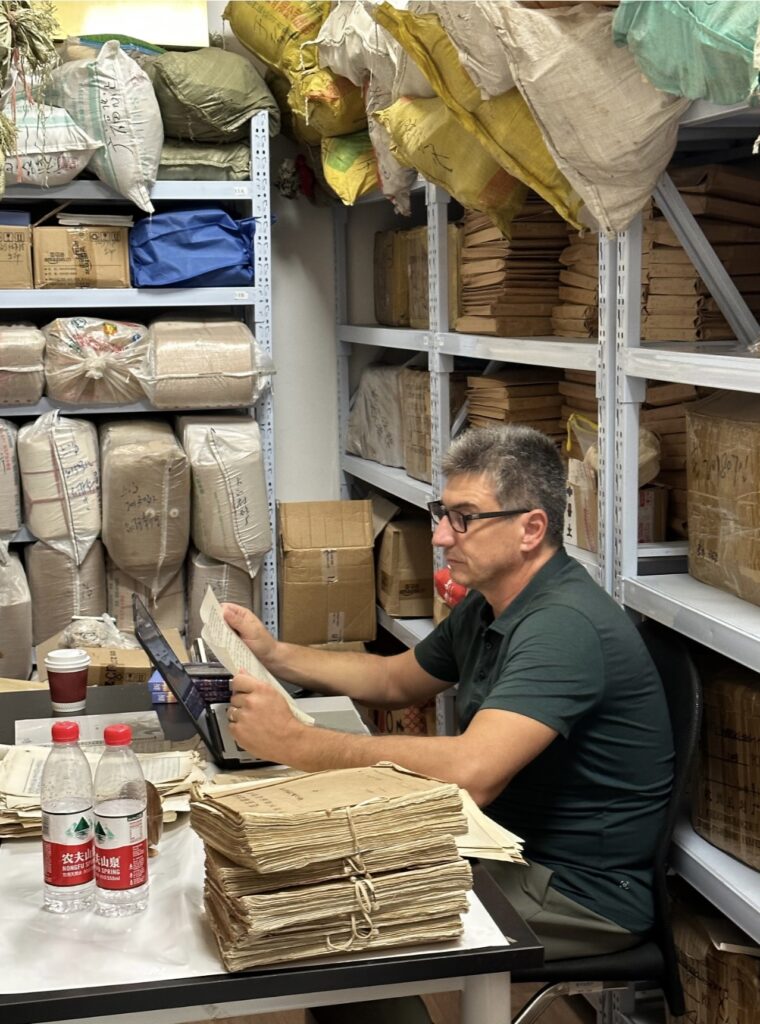
The first is a study of the social and economic history of a group of villages in the mountains of Yongtai County in Gansu province, using several tens of thousands of documents that my Xiamen University colleagues have collected. Students from the region have joined us to read and discuss these documents. Local people are excited to learn that a professor from America has been teaching students at Harvard to read their documents.
The second is a modern history of the Chinese village, or to put this another way, a history of modern China from the perspective of rural communities. For this project, I’ve been travelling to different parts of China to meet with local scholars who have been collecting oral history, gathering archival documents, and just walking around the countryside to get a feel for the changes. In Yiwu, located in Central Zhejiang Province, I interviewed entrepreneurs and migrant laborers alike. One of the people I talked to was former peasant Feng Aiqian. In 1982, she was a small-time peddlar. Tired of being bullied by the local police who frequently raided her stall, she complained to the county Party Secretary. When he agreed to let her and her colleagues be, it set the stage for what is now the world’s largest small commodity wholesale market.
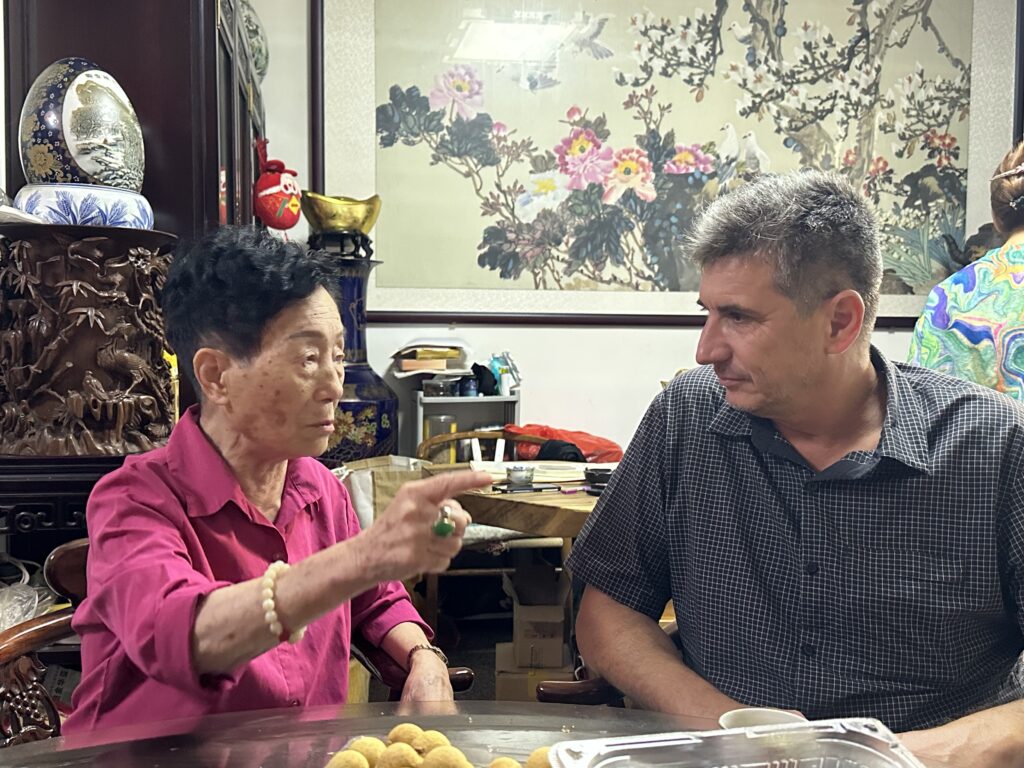
In addition to my own research, I’ve had a busy time giving lectures to audiences around the country. By last count, I have given a dozen talks in Beijing, Shanghai, and Wuhan, as well as several book talks and a livestream in support of the Chinese edition of my latest book. Discussions were lively and open. I also held a brief visiting fellowship at Peking University’s Institute of Humanities and Social Sciences (IHSS). A personal highlight was speaking in the presence of the son, daughter-in-law, and grandson of Hou Yonglu, a peasant diarist who will be the focus of one chapter of my forthcoming History of Rural China book.
If you are a Harvard faculty member interested in applying for a Harvard China Fund grant, please visit our faculty grants page for more information.
